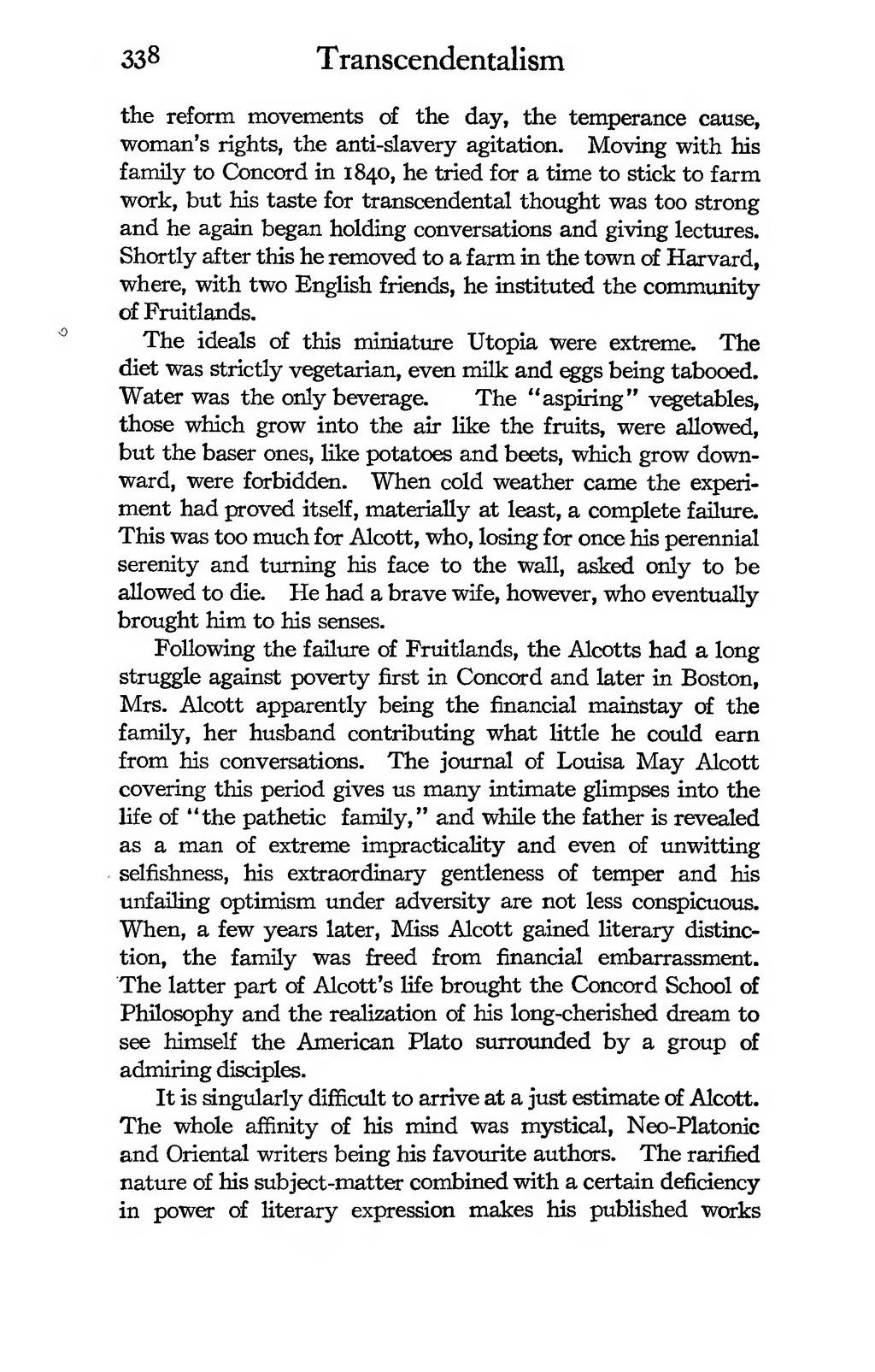the reform movements of the day, the temperance cause, woman's rights, the anti-slavery agitation. Moving with his family to Concord in 1840, he tried for a time to stick to farm work, but his taste for transcendental thought was too strong and he again began holding conversations and giving lectures. Shortly after this he removed to a farm in the town of Harvard, where, with two English friends, he instituted the community of Fruitlands.
The ideals of this miniature Utopia were extreme. The diet was strictly vegetarian, even milk and eggs being tabooed. Water was the only beverage. The "aspiring" vegetables, those which grow into the air like the fruits, were allowed, but the baser ones, like potatoes and beets, which grow downward, were forbidden. When cold weather came the experiment had proved itself, materially at least, a complete failtire. This was too much for Alcott, who, losing for once his perennial serenity and turning his face to the wall, asked only to be allowed to die. He had a brave wife, however, who eventually brought him to his senses.
Following the failure of Fruitlands, the Alcotts had a long struggle against poverty first in Concord and later in Boston, Mrs. Alcott apparently being the financial mainstay of the family, her husband contributing what little he could earn from his conversations. The journal of Louisa May Alcott covering this period gives us many intimate glimpses into the life of "the pathetic family," and while the father is revealed as a man of extreme impracticality and even of unwitting selfishness, his extraordinary gentleness of temper and his unfailing optimism under adversity are not less conspicuous. When, a few years later. Miss Alcott gained literary distinction, the family was freed from financial embarrassment. The latter part of Alcott's life brought the Concord School of Philosophy and the realization of his long-cherished dream to see himsdf the American Plato surrounded by a group of admiring disciples.
It is singularly difficult to arrive at a just estimate of Alcott. The whole afiinity of his mind was mystical, Neo-Platonic and Oriental writers being his favourite authors. The rarified nature of his subject-matter combined with a certain deficiency in power of literary expression makes his published works
